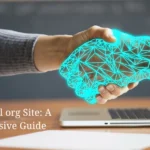Welcome to the transformative world of λιβαισ – a powerful concept that has the potential to revolutionize your life. Have you ever felt stuck in a rut, yearning for change but unsure where to start? Well, fear not, because λιβαισ is here to guide you on a journey of self-discovery and growth. In this blog post, we will delve into the origins of λιβαισ, explore how it can bring about profound transformation, and provide practical techniques for incorporating it into your daily routine. Get ready to unlock your full potential and embrace positive change like never before!
Understanding the Concept of λιβαισ
Have you ever wondered what exactly λιβαισ is and how it can impact your life? At its core, λιβαισ is a concept rooted in the idea of personal growth and transformation. It encompasses the belief that change is not only possible but necessary for living a fulfilling life.
Think of λιβαισ as a guiding force that empowers you to break free from limiting beliefs and patterns, allowing you to step into your true potential. It’s about embracing new perspectives, taking risks, and being open to the unknown.
By understanding and embodying the essence of λιβαισ, you embark on a journey of self-discovery and evolution. It’s about letting go of fear and doubt, trusting in yourself, and welcoming growth with open arms.
In essence, λιβαισ invites you to embrace change as an opportunity for renewal and expansion.
The History and Origins of λιβαισ
Have you ever wondered about the fascinating origins of λιβαισ? This powerful concept has roots that trace back to ancient civilizations, where it was believed to hold transformative energy.
In ancient texts and teachings, λιβαισ was described as a force that could bring about profound change in individuals who embraced its principles. Scholars and sages passed down this wisdom through generations, recognizing the potential for personal growth and enlightenment.
Throughout history, figures known for their wisdom and insight have harnessed the power of λιβαισ to overcome obstacles and achieve remarkable feats. From philosophers to spiritual leaders, many have turned to this timeless concept as a source of inspiration and guidance.
As we delve into the history of λιβαισ, we uncover a rich tapestry of knowledge that continues to resonate with seekers of truth and transformation today. By understanding its origins, we can tap into the same enduring wisdom that has guided countless individuals on their journey towards self-realization.
How λιβαισ Can Transform Your Life
Have you ever felt stuck in a rut, unsure of how to break free from the monotony of everyday life? λιβαισ might just be the key to unlocking a transformative journey towards self-discovery and personal growth.
By embracing the concept of λιβαισ, you open yourself up to new perspectives and possibilities that you may have never considered before. It encourages introspection and mindfulness, guiding you towards a deeper understanding of your true desires and aspirations.
Through practicing λιβαισ, you can cultivate a sense of empowerment and resilience in facing life’s challenges. It enables you to navigate difficulties with grace and clarity, allowing for positive changes to manifest in both your inner world and external circumstances.
The transformative power ofλιβαισ lies in its ability to shift your mindset from one of stagnation to one of progress. By incorporating λιβαισ into your daily routine, you create space for growth, healing, and transformation on all levels – mental, emotional, spiritual.
Techniques to Incorporate λιβαισ into Your Daily Routine
To truly embrace the transformative power of λιβαισ in your daily life, it’s essential to incorporate this ancient practice into your routine with intention and mindfulness. One technique to start is by setting aside dedicated time each day for λιβαισ meditation. Find a quiet space where you can connect with yourself and tap into the energy of λιβαισ.
Another effective way to integrate λιβαισ into your daily routine is through visualization exercises. Take a few moments each day to envision your goals and desires coming to fruition with the help of λιβαισ energy guiding you along the way.
Incorporating movement practices such as yoga or Tai Chi can also enhance the flow of λιβαισ within your body, promoting balance and harmony on a physical level. Additionally, incorporating mindful breathing techniques throughout your day can help you stay grounded and connected to the essence ofλιβαισ.
By consistently practicing these techniques, you will begin to experience a profound shift in how you navigate through life, allowing the power ofλιβαισ to guide you towards positive transformation and growth.
Success Stories of People Who Have Used λιβαισ for Transformation
Imagine Sarah, a busy professional feeling overwhelmed with stress and anxiety. She stumbled upon the concept of λιβαισ and decided to give it a try. By incorporating λιβαισ into her daily routine, she started noticing positive changes in her mindset and overall well-being.
As Sarah practiced various techniques of λιβαισ such as mindfulness meditation and gratitude journaling, she felt more grounded and at peace. Slowly but steadily, she began to let go of negative thought patterns and embrace a more positive outlook on life.
With consistent effort and dedication, Sarah’s transformation was remarkable. She found herself being more present in the moment, appreciating the small joys in life, and approaching challenges with resilience and grace.
Sarah’s success story is just one example of how embracing the power of λιβαισ can lead to profound personal growth and transformation. It shows that with commitment and an open mind, anyone can experience positive change in their lives through this ancient practice.
Overcoming Challenges in the Process
Embarking on a journey of transformation through λιβαισ can be empowering and fulfilling, but it’s essential to acknowledge that challenges may arise along the way. These obstacles are not roadblocks, but rather opportunities for growth and resilience.
One common challenge is maintaining consistency in practicing λιβαισ techniques daily. It’s normal to feel resistance or distractions creeping in, but staying committed to your practice can help you overcome these hurdles.
Another hurdle may involve dealing with inner doubts or negative self-talk. Remember that self-compassion is key in navigating through these challenging moments. Be gentle with yourself and trust in the process of transformation.
External factors like societal expectations or peer influence might also pose challenges. In such instances, setting boundaries and staying true to your values can help you stay aligned with your λιβαισ journey.
By facing these challenges head-on and viewing them as opportunities for learning and growth, you can continue on your path towards personal transformation with renewed strength and determination.
Conclusion: Embracing the Power ofλιβαισ for Positive Change in Your Life
As you embark on your journey to incorporate λιβαισ into your life, remember that transformation is a process. It requires dedication, patience, and a willingness to step out of your comfort zone. The power ofλιβαισ lies in its ability to help you tap into your true potential and become the best version of yourself.
By understanding the concept, exploring its history, and learning how it can positively impact your life, you are already taking the first steps towards a transformative experience. As you implement techniques into your daily routine and hear success stories from others who have embraced λιβαισ, let their experiences inspire and motivate you on your own path.
Challenges may arise along the way – moments of doubt or setbacks – but remember that these are all part of the growth process. Embrace them as opportunities for learning and further self-discovery.
By embracing the power ofλιβαισ, you open yourself up to endless possibilities for positive change in every aspect of your life. So go forth with courage and determination, knowing that through this ancient practice, you have within you the capacity for profound transformation.










